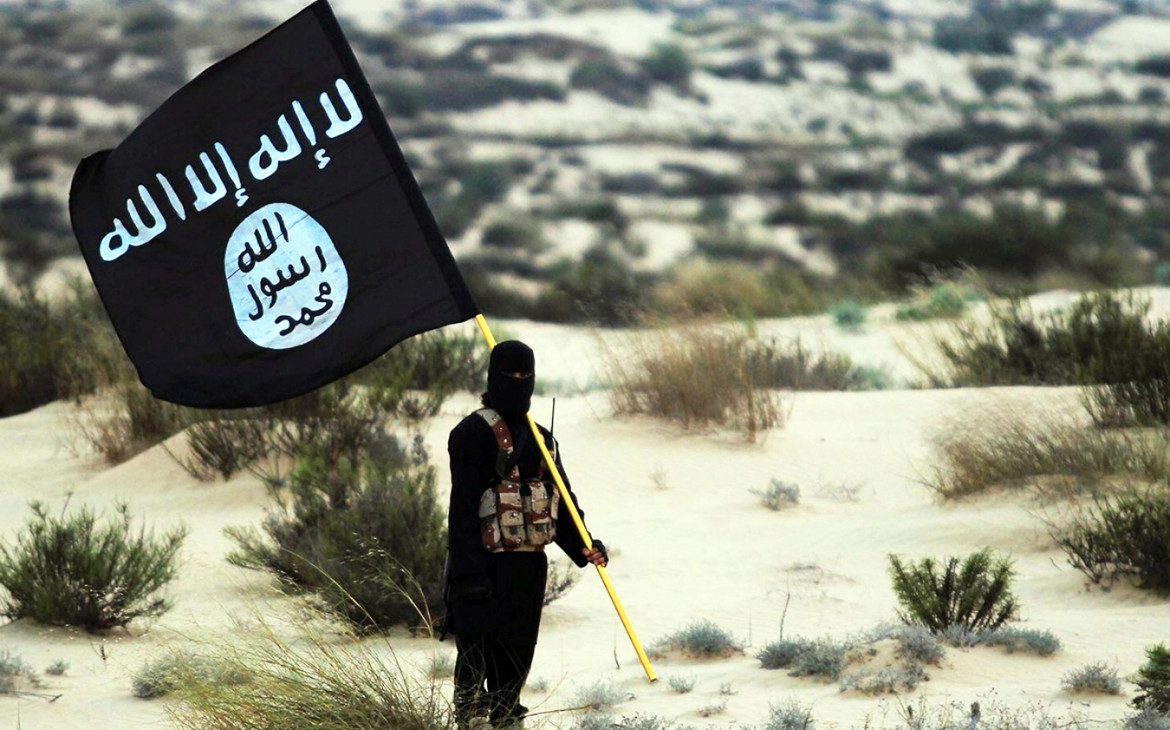Analysis
ISIS is back, but Russia is choosing a different enemy
An attempt is underway to manage the heavy toll of the Crocus City Hall attack on a political level by shifting the blame to the current favorite enemy: ‘the Ukrainian Nazis.’

Where was the Renault with the suspected jihadist commandos, with their hands still bloody after they left the scene of the carnage, going into the Bryansk forest where it was intercepted? Moscow is claiming they were going from Bryansk to Ukraine, where someone was supposedly expecting them. It’s unclear how that would work, since that is a heavily militarized war border. The Ukrainians pointed out instead that the location was in the vicinity of Moscow-aligned Belarus – a much easier border to cross for a car “with Belarusian license plates.”
The script is well-established: from the outset, pro-regime Russian media and social media cast doubt on the authenticity of the ISIS claim of responsibility. This despite the fact that the claim was delivered through channels that never aroused any doubts before in similar situations: the note appeared promptly on Amaq, the channel routinely used by the main ISIS organization. The plausibility of the claim is strengthened by the mode of operation that was identical to that used by jihadist inghimasi in other large-scale attacks against civilian targets.
Contrary to widespread perception, ISIS has repeatedly targeted Russia, and not only in the North Caucasus republics (Chechnya, Ingushetia and Dagestan), where jihadism has entrenched itself after the war that Vladimir Putin unleashed against the Chechens seeking autonomy in order to boost his own popularity, installing the bloodthirsty militias of Ramzan Kadyrov, now present on the Ukraine front. On the opposite, pro-Ukrainian side, scattered Chechen opposition militias are also fighting. ISIS has claimed eight attacks between 2016 and 2019 elsewhere on the Russian Federation’s territory; at the same time, Russian-backed militants have been seen on a number of occasions together with the Caliphate’s soldier cells in other countries. In the summer of 2022, ISIS struck the Russian Embassy in Kabul.
At the outbreak of the Russian-Ukrainian war, Daesh rejoiced at what they saw as the fratricidal nature of the conflict: Christians killing each other. In recent times, Moscow’s counterterrorism has spent not a few resources rooting out jihadist cells. If we take a broader view, Russia has been and is clashing with Daesh in several regions where the jihadists are reorganizing, while the Islamic State’s Khorasan branch recently struck Russia’s ally Iran with a massacre right at the grave of General Suleimani. Tehran also initially accused Israel, only to partially backtrack later.
An attempt is underway to manage the heavy toll of the Crocus City Hall attack on a political level, and the snub suffered by the regime’s security apparatus (which was obviously late to intervene, with no accountability) by shifting the blame to the current favorite enemy: “the Ukrainian Nazis.” After all, the destabilization of truth is an activity on which the sovereignist doctrines of “managed democracy” have banked on since their earliest formulations by the great puppeteer of the early period of Putin’s rule, then turned prophet of the separatist Donbas: Vladislav Sokurov, who distinguished himself among the oprichniki, the Kremlin autocrat’s circle of guard dogs, but who was actually born Aslambek Dudayev in Chechnya.
The fact is that the “jihadist extremist” danger had been simmering for a while. On March 7, Washington had sounded the alarm publicly, urging its citizens not to travel to crowded places such as concert halls in the Moscow region. That public statement sounded like a way of unburdening oneself about something that had been picked up by intelligence but over which one had no control. For his part, Putin responded disdainfully when he addressed the top brass of the intelligence service (FSB) on Tuesday, casting the alert as “blackmail” and an “attempt to intimidate and destabilize.” Notably, he changed the subject to “the neo-Nazi regime in Kyiv,” which, with Western support and training, would supposedly adopt “terrorist methods,” striking at infrastructure, including “public spaces.”
In conclusion, we can expect a new wave of comments along the lines of “ISIS is actually a CIA operation”: a disinformation campaign now more than a decade old, which came up back when Kurdish fighters, backed by the US-led coalition, were fighting Daesh in Syria, while Russia was offering its bombs to Assad, who was using them to hit civilians but leaving ISIS bases untouched – the perfect enemy in the cynical calculus of destroying the anti-regime insurgency.
It is a fact that Daesh is working to regain initiative, from the Sahel to the Philippines; one should not overlook the attack on Friday in the heart of the Afghan Emirate (more than fifty casualties in Kandahar, where the Taliban were crowding to collect their wages). More or less direct signs of growing activism are also being seen in Iraq and Syria, where the Kurdish forces, which have control over a large part of the prisoners loyal to the Caliphate, are increasingly under fire from Turkey.
This ongoing attempt by ISIS to regain centrality and global prominence, also by engaging in clashes with the Al-Qaeda galaxy, is aiming to recruit support by exploiting the rifts opened up in the Islamic world by Israel’s reckless action in Gaza, and has implications that are difficult to predict. For a Russia clinging to the myth of the autocrat’s strength, acknowledging that a new jihadist front has opened up comes at considerable cost, especially when considering the strategic imperative of producing the maximum effort to oil the war machine for the offensive war in Ukraine. Consensus and efficiency are often hard to find in authoritarian regimes.
In a novel about the amorality of power published under a pseudonym, puppet master Surkov described the nonlinear warfare of the future, where the aim is not to win against the enemy, but to manage the war process in order to destabilize public perception: “muddling the trail, obscuring the truth.”
Originally published at https://ilmanifesto.it/protagonismo-dellisis-e-scelta-del-nemico on 2024-03-24
